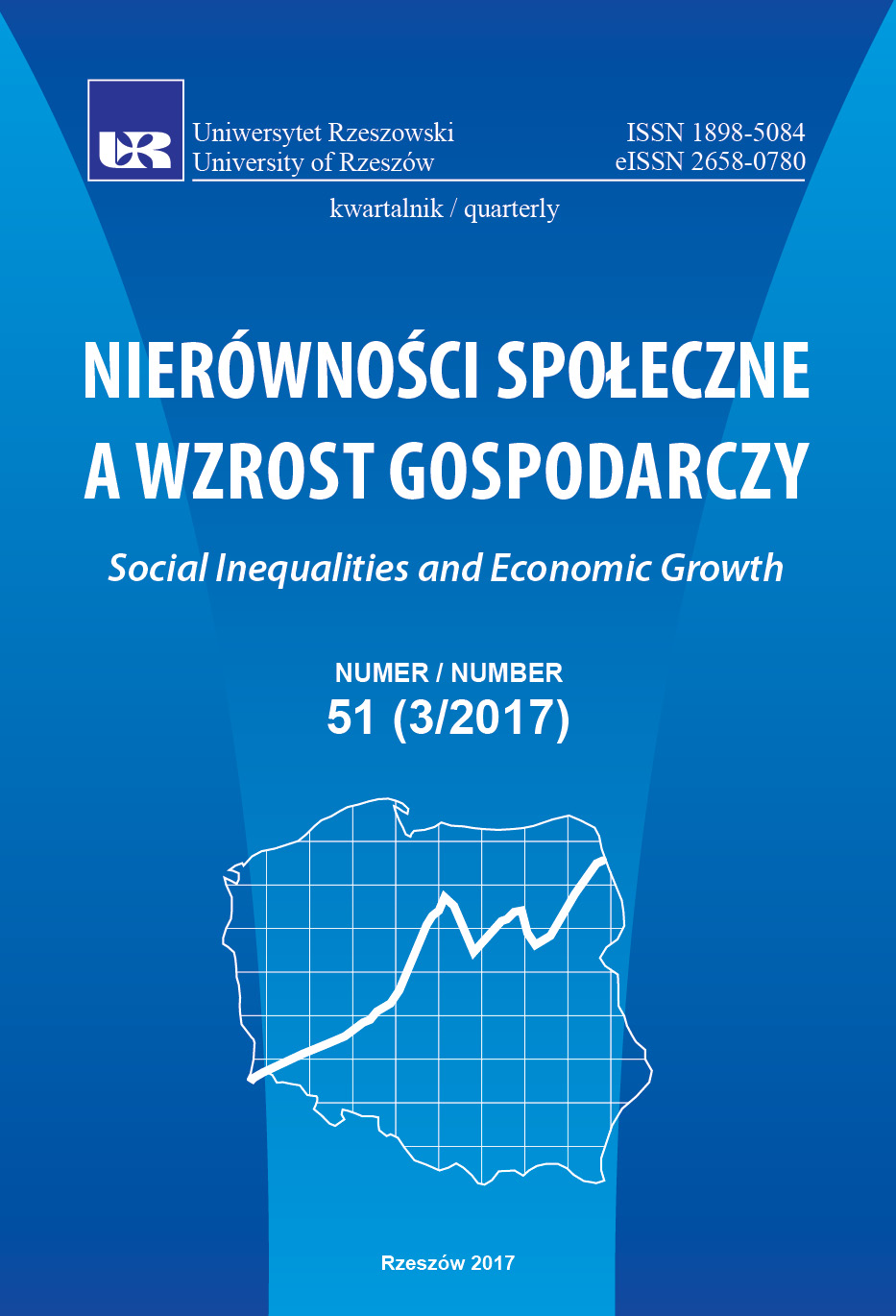The impact of education on economic security of households
DOI:
https://doi.org/10.15584/nsawg.2017.3.1Keywords:
education, economic security, household, cohortAbstract
The paper is aimed to investigate whether and how cohort differences explain differentiation in the educational effects on household’s economic security. Cohorts are distinguished by common educational and professional experiences, controlling for economy conditions. The economic context covers: the beginning of transition in Poland (1990), Poland’s accession to the EU (2004) and the beginning of financial crisis (2008). The criteria for determining the cohorts refer to the periods of educational level attained, conditions of entering a labor market, improving qualification and a carrier stage in time of the last financial crises. The research covers three cohorts: cohort 1– respondents in age of 25–34 in 2013 – called „Children of transition; cohort 2 – respondents in age of 35–44 in 2013 – called „Youth of transition”; cohort 3 – respondents in age of 45–64 in 2013 – called „Adults of transition”. Economic security of households is defined as the ability to achieve income necessary for covering household needs at its suitable level and to create financial reserves to be at disposal in case of unfavorable accidence. A measure of economic security is calculated on a base of a structural equation model (SEM). The questionnaire survey is a source of data for observed variables. The survey was carried out by the professional polling agency in Poland in June 2013. The whole sample covers 800 respondents in age between 25 to 64. The findings reveal that a positive impact of education on economic security is the strongest for the youngest cohort, in which a fraction of well-educated individuals is the highest. Higher quality of human capital allows the younger cohort to achieve the same level of economic security like the cohort older by several years. Higher educational level attained, less households insecure economically. The secondary level of education among the youngest cohort does not create the ability to ensure economic security for a family.Downloads
Download data is not yet available.
Downloads
Published
2020-11-13
How to Cite
Piotrowska, M. (2020). The impact of education on economic security of households. Social Inequalities and Economic Growth, 3(51), 9–26. https://doi.org/10.15584/nsawg.2017.3.1
Issue
Section
Articles
License
Copyright (c) 2017 University of Rzeszow

This work is licensed under a Creative Commons Attribution-ShareAlike 4.0 International License.


